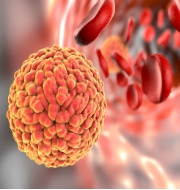Malacidins: Scientists discover new class of antibiotics from soil
Scientists from The Rockefeller University in New York have reported discovery of a new class of antibiotics called malacidins. It has been produced by microorganisms living in soil and dirt and is capable of killing off several antibiotic-resistant pathogens.
Discovery
The new family of antibiotics comes from molecules present in large variety of soils. Scientists had analysed more than 1000 unique soil samples across US to better understand how new class of antibiotics is produced and how it can be exploited for fighting bacteria. They had used DNA information that encodes production of antibiotic in daptomycin to study it. This discovery could be a useful weapon in field of medicines.
Significance
Malacidins are distinctive class of antibiotics that are commonly encoded in soil microbiomes. They have never been reported in culture-based NP (Natural Products) discovery efforts.
Malacidins are active against multidrug-resistant pathogens, sterilise methicillin-resistant Staphylococcus aureus (MRSA) skin infections in animal wound model and did not select for resistance in laboratory conditions.
The malacidins was tested on rats with MRSA skin infections. The condition was cured, and even after 20 days of continued contact with malacidins, the rodents did not experience any side effects.
Concern
Malacidins only target gram-positive bacteria with a very thick cell wall. It is ineffective against gram-negative bacteria which cause cholera, pneumonia, sexually transmitted diseases, and plague. Thus, it does not make it universal cure against all bacteria.
Month: Current Affairs - February, 2018



Biresh
February 17, 2018 at 11:21 amLanguage Hindi ho skta hai Kya sir
Mukesh kumar
February 19, 2018 at 6:49 amHindi me